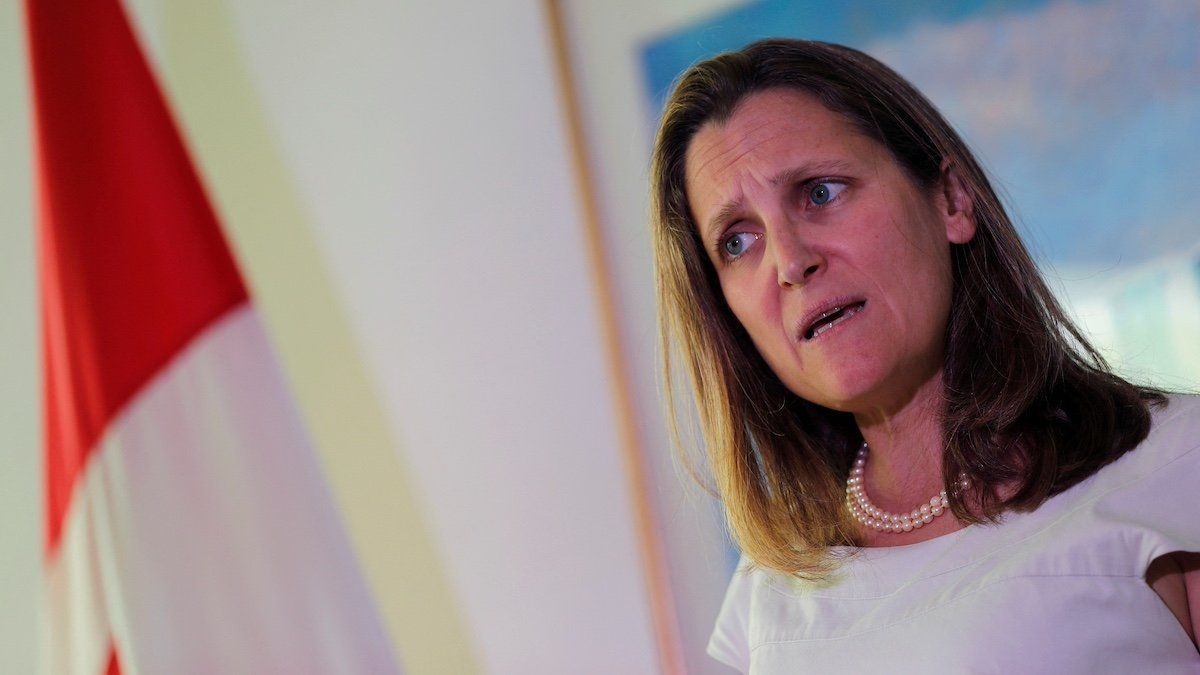Canadian Finance Minister Chyrstia Freeland is expected to reveal Monday that she has missed the $40.1 billion deficit target that she set for herself last year, the latest in a long string of fiscal targets Justin Trudeau’s government has missed over the years.
Freeland said Tuesday she expects the fall economic statement, which she will present on Dec. 16, will show a declining debt-to-GDP ratio, but she did not mention the deficit target. “I chose my words with care because it is important to be clear with Canadians. It is important to be clear with capital markets.”
The missed target will make Freeland a target of criticism by the business community and Conservatives.
According to a report in The Globe and Mail, Freeland and Trudeau are at odds over spending. Her office and nonpartisan Finance Department officials are unhappy about the government’s $6.28-billion plan for a holiday sales-tax break and $250 checks for people earning up to $150,000.
The gimmicky measures – which have not moved the polls for the Liberals – seem to have made it impossible for Freeland to hit her target.
The tension between Freeland and Trudeau revives questions about her future in the government. Trudeau brought Public Safety Minister Dominic LeBlanc, not her, to Mar-A-Lago last month, and the Globe reported Thursday that Trudeau is again trying to recruitMark Carney, presumably to take her job.Correction: This post originally referred to Dominic LeBlanc as the transport minister.
